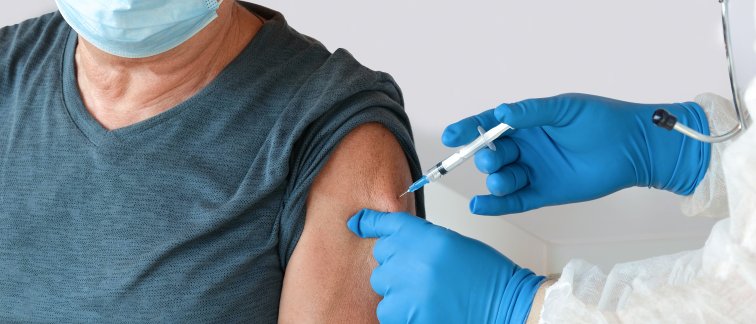Gay and bisexual men who have not been fully vaccinated against the monkeypox virus (mpox) can still visit the Municipal Health Services (GGD) in Amsterdam this summer for an mpox vaccine. Although vaccinated men can still get sick in a minority of cases, there is no boostercampaign. Nevertheless, since May 2023, the Municipal Health Services are once again offering vaccinations against mpox, the non-stigmatizing name that world health organization WHO gave to the disease that causes the monkeypox virus.
Unvaccinated men who have alternating male sexual contacts and transgender persons with frequent alternating contacts are eligible for vaccination. They can make an appointment at the Public Health Service. Partially vaccinated persons are also welcome.
A year ago, mpox took hold around the world. Anyone can contract the disease, but infections took place almost exclusively in the group of men who have sex with men (msm), although it was not clear at the time whether it would stay that way. Around 1.250 people in the Netherlands contracted mpox, half of them where living in Amsterdam. The symptoms are vesicles, often near the pubic area, fever, itching and fatigue. The pain can sometimes be very severe.
Hardly any new infections
Meanwhile, mpox has been found to pose no danger to the general population. The outbreak has also subsided in the msm population; a few patients are still being reported. No patients have been reported in Amsterdam since the turn of the year so far, and four in the rest of the Netherlands.
To curb mpox, last year the Municipal Health Services offered vaccinations to people with an increased risk of mpox. Although there was panic at the time and the Municipal Health Services were criticized for the length of time it took to launch the vaccination campaign, only half of those invited came to get the vaccination. In the Netherlands, about 30,000 men were partially vaccinated and 12,000 were fully vaccinated.

Diminished panic
As a possible reason for the low turnout, Professor de Vries points to the diminished panic when it turned out that mpox was much less deadly in the Western world than studies in Africa showed. "The mortality in those studies was between 2 and 10 percent, but it turned out to be 0.04 percent or less in the West."
The vaccine does not fully protect against infection; in about 80 percent of cases, serious illness is prevented. The duration of protection (immunity) is not yet fully known, in part because infections can go unnoticed. Exactly how it works is still being researched, according to Professor de Vries.
Milder course
A completed mpox infection does not fully protect against reinfection, although it is plausible that that chance decreases. "Moreover, with reinfection, the risk of serious illness decreases, just as with covid," says Professor de Vries, who also participates in the so-called expert consultation on mpox at the National Institute for Public Health and the Environment.” Also with post-vaccination infection, the burden of disease is usually milder."
Partly for this reason, the Municipal Health Services have not launched a booster campaign for men who were fully vaccinated last year. "We are now focusing on msm men and transgender individuals who have not yet been vaccinated or have been partially vaccinated," De Vries says. "For that group in particular, mpox can be annoying and painful."
Several thousand Amsterdam residents are estimated to be affected. 111 shots have been taken so far this month.
Source: read the original (Dutch) article by Jop van Kempen for Het Parool here.
Learn more about mpox:

